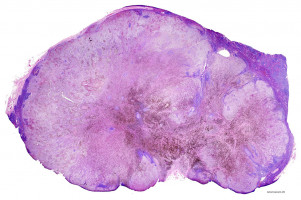
University of California, Irvine researchers have identified a specific mutation that allows melanoma tumour cells to remain undetected by the immune system.
The finding may lead to the development of better immunotherapies and more effective methods to identify patients that would respond to these new therapies.
The study, "ATR Mutations Promote the Growth of Melanoma Tumours by Modulating the Immune Microenvironment," is published in the journal Cell Reports.
"Cancers develop not only because they acquire mutations that promote their growth but also because they are able to prevent the immune system from recognising and removing them," said Anand K. Ganesan, MD, senior author and associate professor of dermatology at the UCI.
He explained that researchers identified a mutation in the ATR gene, a protein that normally recognises and repairs UV-induced DNA damage, in melanoma tumours.
Cancers with this ATR mutation suppress the body's natural immune response.
"Understanding how developing tumours interact with the immune system to promote their continued growth is a key to developing effective immunotherapies," he said.
Skin cancer is the most common of all cancers, according to the American Cancer Society.
In 2017, it's expected that more than 87,000 new melanomas will be diagnosed (about 52,170 in men and 34,940 in women) and that about 9,730 people are expected to die of the disease.
We are an independent charity and are not backed by a large company or society. We raise every penny ourselves to improve the standards of cancer care through education. You can help us continue our work to address inequalities in cancer care by making a donation.
Any donation, however small, contributes directly towards the costs of creating and sharing free oncology education.
Together we can get better outcomes for patients by tackling global inequalities in access to the results of cancer research.
Thank you for your support.